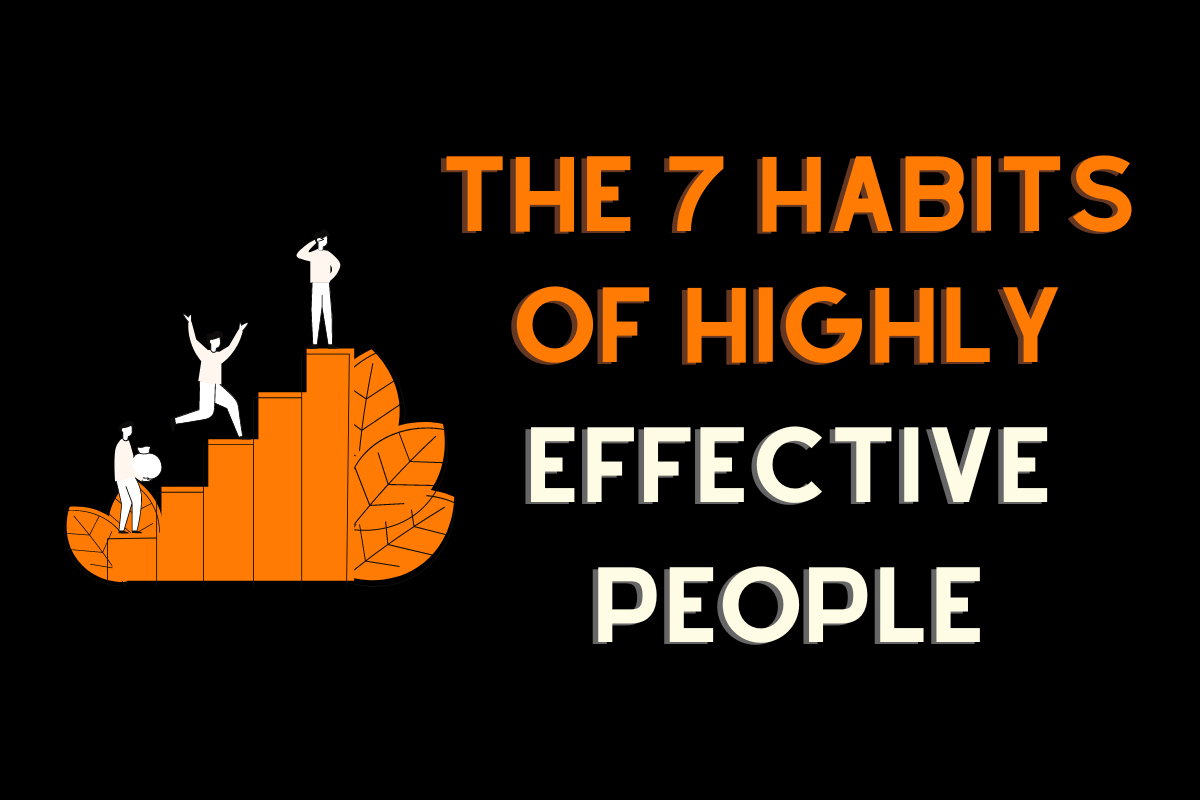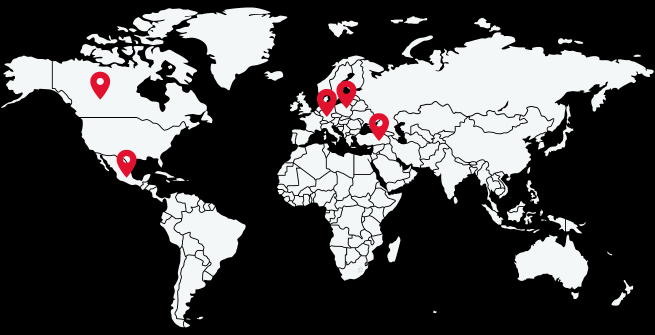“The 7 Habits of Highly Effective People” is a bestselling self-help book written by Stephen R. Covey. First published in 1989, this influential book has had a profound impact on personal development and leadership literature and its timeless principles and practical advice for achieving personal and professional success have become a way of living for many.
The book is structured around the concept of seven fundamental habits that, when embraced and practiced, can lead individuals toward greater effectiveness in all aspects of their lives, from their personal relationships to their professional endeavors.
While Covey calls them “habits”, you won’t find running or getting up early on the list. Instead, these are seven ways to think, communicate and function that serve as the principles to establish a strong mindset through gaining perspective on how to conduct your life with as much purpose as possible.
These are Covey’s 7 Habits of Highly Successful People
Be proactive
Covey argues that highly effective people take responsibility for their actions and choices. They understand that they are in control of their own destinies and can choose their responses to any situation. Being proactive means taking initiative and not reacting passively to external events.
Real-life application:
Many individuals have shared how adopting a proactive mindset transformed their lives. They stopped blaming external circumstances and took control of their choices. This shift in attitude empowered them to make significant changes, such as pursuing new careers, starting businesses, or overcoming personal challenges.
Begin with the end in mind
Covey emphasizes the importance of having a clear vision and set of principles that guide your life. Highly effective people have a well-defined sense of purpose and use it to set meaningful goals and priorities.
Real-life application:
Setting clear goals and aligning daily actions with long-term vision has been a game-changer for numerous people. They have experienced greater focus, clarity, and motivation to work towards their aspirations, whether in career, relationships, or personal growth.
Put first things first
This habit is about time management and prioritization. Covey encourages readers to focus on what matters most and to prioritize their tasks accordingly. It’s about organizing your life around your most important values and goals.
Real-life application:
People who prioritize their most important tasks and values have reported increased productivity and work-life balance. They have learned to say “no” to distractions and unimportant commitments, leading to more meaningful and satisfying lives.
Think win-win
Covey promotes a mindset of seeking mutually beneficial solutions in interpersonal interactions. This habit encourages collaboration, cooperation, and a belief that success is not a zero-sum game. Win-win thinking fosters positive relationships and helps in problem-solving.
Real-life application:
The win-win mindset has improved personal and professional relationships. Individuals have shared stories of resolving conflicts, negotiating beneficial agreements, and building trust by seeking mutually beneficial solutions.
Seek first to understand, then to be understood
Effective communication is at the heart of this habit. Covey argues that before expressing your viewpoint, it’s essential to genuinely listen and understand the perspective of others. This empathetic approach to communication can lead to more productive and meaningful conversations.
Real-life application:
Effective communication has been a transformative experience for many. Active listening and empathetic understanding have helped individuals resolve conflicts, strengthen relationships, and become more influential in their personal and professional interactions.
Synergize
This habit is about leveraging the strengths and differences of individuals within a team or group to achieve better outcomes collectively. Covey believes that when people work together synergistically, the results are greater than what each individual could achieve alone.
Real-life application:
Collaboration and teamwork have led to remarkable achievements for some. Individuals and organizations have leveraged the collective strengths of their teams to innovate, solve complex problems, and achieve goals that would have been unattainable otherwise.
Sharpen the saw
This final habit is centered on self-renewal and self-care. Covey emphasizes the importance of regularly rejuvenating and renewing one’s physical, mental, emotional, and spiritual well-being. Taking time for self-improvement and self-maintenance is essential for long-term effectiveness.
Real-life application:
Prioritizing self-care and personal renewal has resulted in improved physical and mental health, increased energy levels, and reduced stress. Many have shared how dedicating time to exercise, meditation, reading, and other self-improvement activities has enhanced their overall well-being.
The global impact of the book

These seven habits are presented in a logical progression, with the idea that as individuals internalize and apply each habit, they build a foundation for the next one. Covey’s book is not just a set of principles but also a guide on how to integrate these habits into your daily life to become a more effective and fulfilled person.
“The 7 Habits of Highly Effective People” has remained a popular and influential resource for personal and professional development, offering valuable insights into timeless principles that can lead to lasting success and fulfillment. The book has consistently been a bestseller for decades, with millions of copies sold worldwide.
Its enduring popularity is a testament to its timeless wisdom and practical advice. Many readers and organizations have credited the book with transforming their lives and work, by helping individuals and teams become more effective, improve relationships, and achieve their goals and by providing a strong foundation for effective leadership.
The book’s concepts are taught in universities, business schools, and by corporate trainers around the world and habits such as “begin with the end in mind” and “think win-win” have entered mainstream vocabulary.
Overall, “The 7 Habits of Highly Effective People” by Stephen Covey has had a profound and lasting impact on individuals and organizations worldwide. Its enduring popularity can be attributed to its practical wisdom, universal applicability, and the positive changes it has brought to the lives of countless readers and practitioners.



